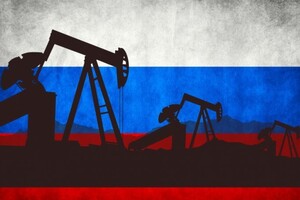The EU is still debating how quickly countries will stop importing oil from Russia.

Germany, which has long been a major opponent of the embargo on Russian oil, ready to support the European Union's initiative to ban oil imports from Russia. This was reported by The Wall Street Journal with reference to German officials.
The publication notes that on April 27, German representatives in the EU institutions agreed to a full embargo on Russian oil – provided that Berlin gets enough time to secure alternative supplies.
According to WSJ sources, such changes in German policy increase the likelihood that the EU will agree on a phased embargo on Russian oil – a decision is possible next week. However, there is still debate about how quickly the EU will stop importing oil from Russia and whether it will limit prices or change tariffs.
The debate over Europe's ban on Russian oil has changed dramatically in recent days, but some countries remain cautious about the economic impact of the oil embargo, including Hungary, Italy, Austria and Greece, while all 27 EU governments must approve the oil ban. .
The Brussels-based Bruegel think tank estimates that the EU buys 3 to 3.5 million barrels of oil a day from Russia and sends $ 400 million a day to Russia. This is about 27% of EU oil imports. According to the International Energy Agency, oil and gas revenues accounted for 45% of Russia's federal budget in 2021.
Read also: US oil tanker arrives in Europe for the first time in six years
However now there is a problem – India and China continue to buy Russian oil. Indian refineries bought Russian oil at a discount for two months of the war in Ukraine, which other buyers tried to avoid.
According to ZN.UA , for some Russian crude oil and Coal exported to Europe is difficult to find for other buyers, as there are few refineries and power plants for their use. Nevertheless, this is a dubious justification for the fact that since the beginning of Russia's full-scale invasion of Ukraine by sea and pipelines, 63 billion euros of fossil fuels have been exported, 44 billion (71%) of which belongs to the EU. Read about it in the article by Laura Millivirt and Konstantin Krynytsky – “Financing Putin's War in Europe”.




